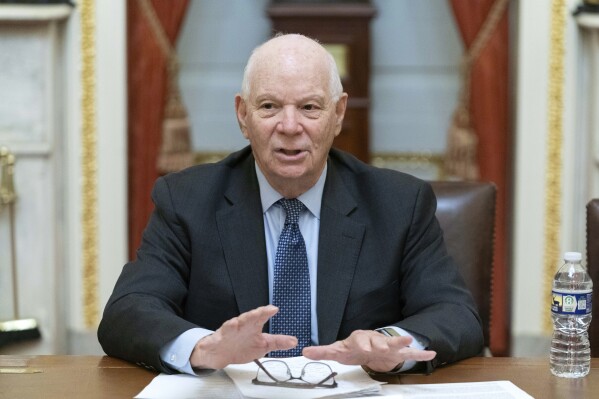Prominent Egyptian political activist and acclaimed academic dies at 85
CAIRO (AP) — Saad Eddin Ibrahim, a prominent Egyptian-American academic and pro-democracy activist during the reign of former Egyptian President Hosni Mubarak, died on Friday. He was 85.
Ibrahim’s death was announced by Egyptian state media on Friday although few further details were given. The acclaimed academic was a leading critic of Mubarak’s autocratic government and an advocate for the rights of minority groups in Egypt, such as Coptic Christians. He spent most of the 2000s either detained or in self-imposed exile. It remains unclear where he died and what the cause of death was.
Ibrahim was born in 1938 near the northern delta city of Mansoura and turned to a career in academia after finishing school.
In the 1980s he founded two Cairo-based rights organizations: The Arab Organization for Human Rights, and later, The Ibn Khaldun Center for Development Studies. Both were critical of Mubarak’s government and other Arab states.
 Cardin eyes changes on Egypt, Turkey and around the world as he takes powerful Senate foreign post
Cardin eyes changes on Egypt, Turkey and around the world as he takes powerful Senate foreign post
 Calls are mounting for Menendez to resign as Democrats grapple with ‘shocking’ bribery allegations
Calls are mounting for Menendez to resign as Democrats grapple with ‘shocking’ bribery allegations
 Egyptian rights group says 73 supporters of a presidential challenger have been arrested
Egyptian rights group says 73 supporters of a presidential challenger have been arrested
In 2000, while a university professor at The American University of Cairo, Ibrahim was detained after allegedly receiving funds from the European Union without any authorization from the Egyptian government. In a high-profile trial, he was eventually charged with several offences including the defamation of Egypt’s image and sentenced to seven years in jail. He was later cleared of all charges and released in 2003.
In the years that followed, Ibrahim continued to advocate for democratic reform in Egypt. In writings and speeches he called on the U.S. to make its aid to Egypt conditional on greater political freedoms. Egypt is one of Washington’s top recipients of military aid since it signed a U.S.-brokered peace deal with Israel in 1979.
Ibrahim went into self-imposed exile in 2007 shortly after meeting President George W. Bush and lobbying the former president to pressure Egypt into further democratic reform. The next year, he was again charged with defaming Egypt’s image and sentenced in absentia to two years in prison.
During his years abroad, he taught in America and Lebanon before retiring from academia. He returned to Cairo amid the build-up to the 2011 uprising that became known as the Arab Spring, but he was not arrested.
In an interview with The Daily Egypt in 2010, Ibrahim said that he had come back to Egypt to witness society change. “People are getting ready for a post-Mubarak stage,” he said.
The 2011 protests were built on calls for an end to deep-rooted embezzlement and government corruption. Mubarak had been in power for nearly 30 years in power, but there were growing concerns that Gamal Mubarak, his younger son, would be set up to succeed him.
Following weeks of mass demonstrations and violent clashes between security forces and protesters, Mubarak stepped down in February 2011. He was sentenced to life imprisonment for involvement in the killing of anti-government protesters but later retried, acquitted and released in 2017.
In later life, Ibrahim often gave political interviews to media outlets. He is survived by his wife Barbara, and his two children, Randa and Amir.
Disclaimer: The copyright of this article belongs to the original author. Reposting this article is solely for the purpose of information dissemination and does not constitute any investment advice. If there is any infringement, please contact us immediately. We will make corrections or deletions as necessary. Thank you.


